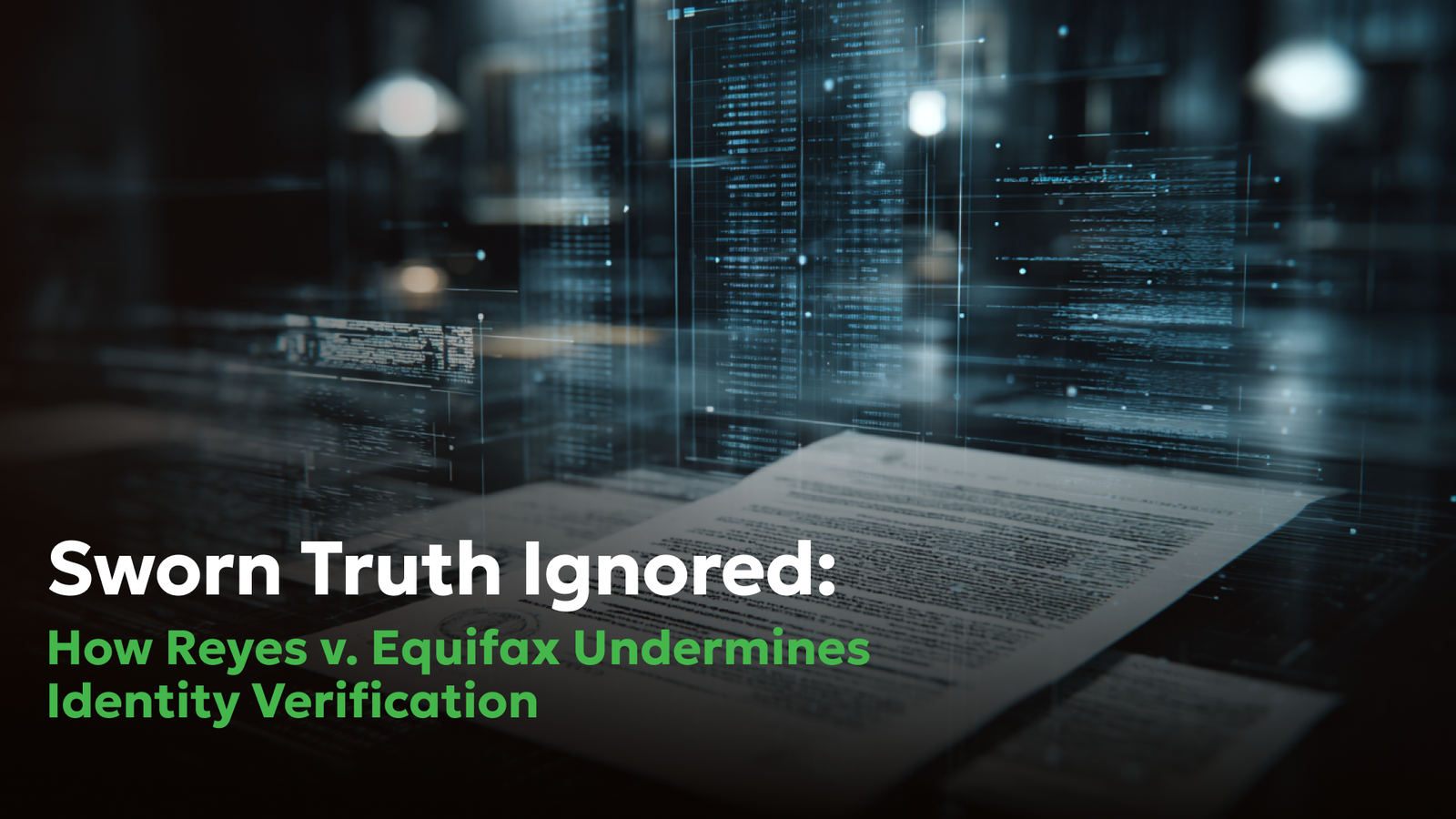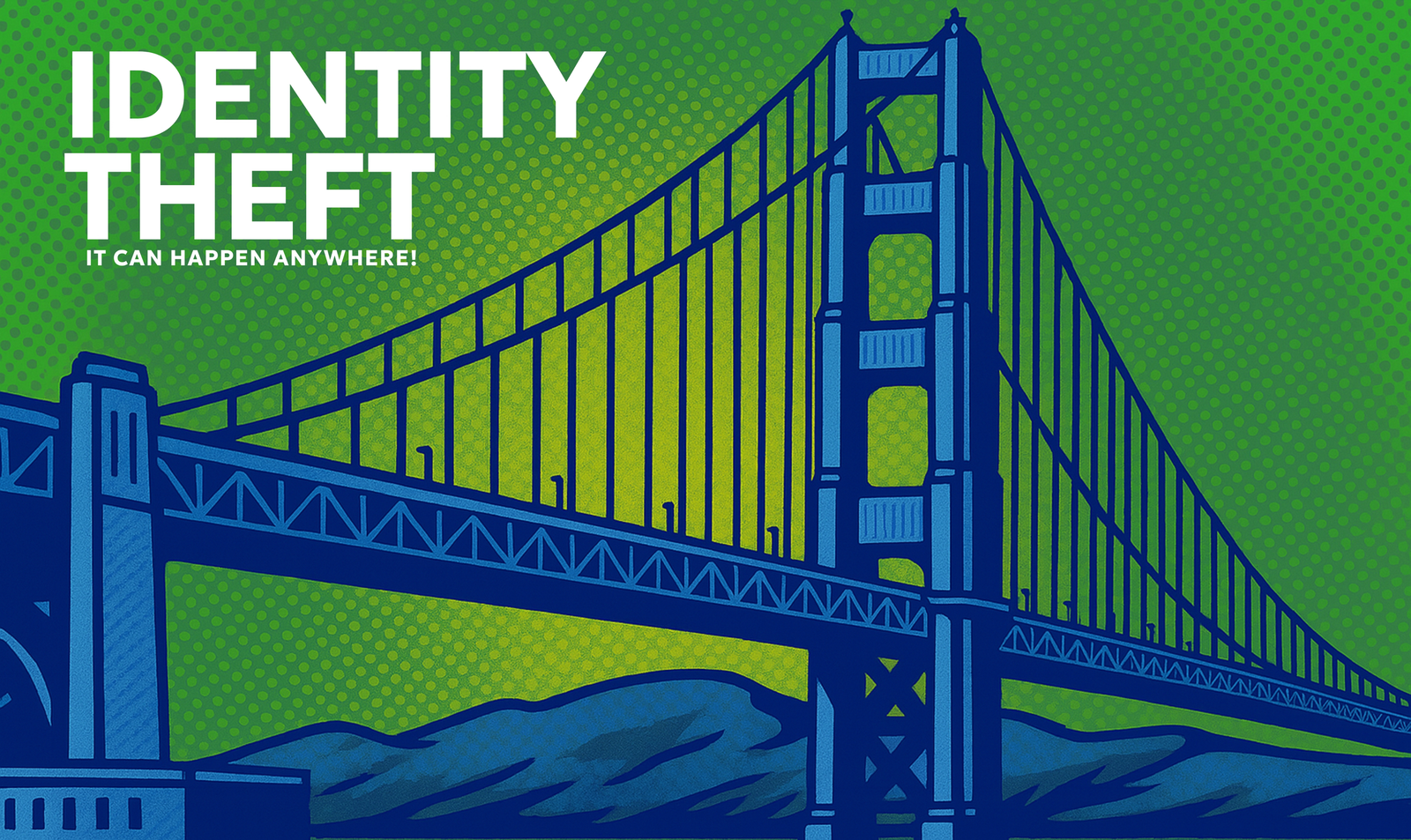How to Report Identity Theft to Credit Bureaus
- Blog
- Credit Report Identity Theft
How to Report Identity Theft to Credit Bureaus

Notifying credit agencies is an essential first step when you’re the victim of identity theft. Here’s the best way to do it.
That first awareness that you have become the latest victim of identity theft is an awful feeling. The specific circumstances of your situation will determine how you spend the next weeks, months, or years. But no matter what, you need to notify the consumer reporting agencies (credit bureaus). Here’s how to do it quickly and effectively.
Discovering that you have been the victim of identity theft is one of the most stressful things a person can experience. At the outset of such a discovery, you have no idea of the extent of the damage, when it happened, who did it, and how long it will take to get fixed. But you know that it could get really bad. As identity theft attorneys, we can confirm that without quick and effective action, identity theft will be really bad.
But first, take a deep breath.
Then report it to everyone to whom it needs to be reported. Start with the three major consumer reporting agencies. Keep reading to learn how.
The Initial Report
If you suspect that your identity has been stolen, you need to contact the Consumer Reporting Agencies (CRAs) immediately. The good news is that you don't need to contact all three bureaus separately. Under the Fair Credit Reporting Act (FCRA), once you report the theft to one of the credit bureaus, that bureau must inform the other two. This ensures that a fraud alert is placed on your credit report by all three bureaus. Here’s how to do it:
- Choose One Bureau to Contact.
- Request a Fraud Alert. When you call, ask the bureau to place a fraud alert on your credit report. This alert makes it harder for identity thieves to open more accounts in your name as it sends a signal to businesses to confirm with you that you are applying for credit. A fraud alert is free, lasts for one year, and must be renewed when it expires at the end of that year.
- Get a Copy of Your Credit Report. Once the fraud alert or credit freeze is in place, request a credit report from each of the three CRAs. Check these reports for any accounts or transactions you don’t recognize.
Starting with a single bureau saves time and ensures that your alert is applied across the board quickly.
Identity Theft Rights Under the FCRA
The FCRA gives you specific rights to protect yourself if your identity is stolen. Understanding these rights can help you take control of the situation. Here are some key points:
- Fraud Alerts. As mentioned, you can place a fraud alert on your credit reports. There are different types of alerts:
- An initial fraud alert lasts for one year and is ideal if you suspect you're a victim of identity theft.
- An extended fraud alert lasts for seven years and is available if you've confirmed you are a victim of identity theft and have filed a report with a government agency.
- Free Credit Reports. The FCRA says you’re entitled to an extra free copy of your credit report from each bureau every twelve months. That practice has since evolved so that you can get a free copy of your credit report from each of the three big CRAs every week.
- Disputing Errors. If you find unauthorized accounts or inaccurate information on your report, you can dispute it. The CRAs are legally obligated to investigate and remove inaccurate information.
These rights help you manage your credit and prevent further misuse of your identity.
The Differences Between a Credit Freeze, Credit Lock, and Fraud Alert
The CRAs will place a fraud alert on your credit report. That might be enough - depending on the circumstances of the identity theft. Understanding the differences between a credit lock, credit freeze, and fraud alert can help you choose the best protection for your situation.
| Security | What It Is | Who It's For | How to Do It |
| Credit Freeze | A credit freeze restricts access to your credit report, making it harder for identity thieves to open new accounts in your name. Most creditors need to see your credit report before opening a new account. If they can't see it, they may not extend credit. | A credit freeze is best if you have confirmed your identity has been stolen or want high protection against identity theft. | You must request a separate credit freeze at each credit bureau. It’s free to place and lift a freeze. |
| Credit Lock | Like a credit freeze, a credit lock restricts access to your credit report but usually comes with an app that allows you to lock and unlock your credit easily. | A credit lock is good for people who want the protection of a freeze with the convenience of quickly locking and unlocking their credit. | Credit locks may be part of a subscription service with the credit bureaus. |
| Fraud Alert | A fraud alert tells businesses that check your credit to verify your identity before opening a new account. It’s less drastic than a freeze or lock. | A fraud alert is suitable if you want to protect yourself but don’t believe your identity theft risk is high enough to need a freeze. | Contact one bureau to place an alert, and it will notify the others.
|
Choosing the right protection depends on your specific situation and how much risk you perceive. In many cases, starting with a fraud alert is sufficient. The attorneys at Consumer Attorneys can help you determine which is best for you.
How Consumer Attorneys Can Help
Dealing with identity theft can be overwhelming and confusing. This is where Consumer Attorneys come in. We can explain your rights and the steps you must take next, help you dispute unauthorized charges and accounts opened by thieves, work with CRAs to remove erroneous information from your credit report (and hold them accountable if they don’t), and represent you if legal action is necessary.
This is what we do and we have decades of experience doing it. We offer legal advice, advocacy, and support so you can recover from identity theft with as little stress as possible.
Frequently Asked Questions
Notifying the consumer reporting agencies (CRAs) does not hurt your credit. It's a crucial step every identity theft victim must take to protect their credit from further damage. When you report identity theft, the CRAs place fraud alerts or credit freezes on your accounts, preventing unauthorized access and new credit applications. However, the fraudulent activity that led to the identity theft can negatively impact your credit score if not promptly addressed. It is essential to work with the CRAs and creditors to remove any fraudulent accounts or charges to restore your credit to its accurate standing. Taking swift action helps mitigate potential damage to your credit.
To check if someone is using your Social Security number (SSN), review your credit reports from the three major consumer reporting agencies (CRAs): Equifax, Experian, and TransUnion. You can obtain free reports at AnnualCreditReport.com. Review those reports. Look for unfamiliar accounts or inquiries. Monitor your bank and credit card statements for unusual transactions. Additionally, create a My Social Security account at ssa.gov to check your earnings record for discrepancies. Consider placing a fraud alert or credit freeze on your reports for extra protection. If you suspect misuse, report it to the Social Security Administration. Contact Consumer Attorneys for further assistance.
You are not liable for fraudulent charges if someone opens a credit card in your name without your consent. However, you must act quickly to limit potential damage. Immediately report the fraud to the credit card issuer and the major consumer reporting agencies (Equifax, Experian, and TransUnion) and then contact the issuing credit card company. Once you report it, the card issuer will investigate, and you should not be held responsible for any charges made on the fraudulent account. Regularly monitor your credit to catch any future issues early.
To freeze your Social Security number (SSN), you should place a credit freeze on your credit reports with the three major consumer reporting agencies (CRAs): Equifax, Experian, and TransUnion. This prevents identity thieves from opening new credit accounts in your name. To do this, contact each CRA individually online or by phone and give them your personal information. Once the freeze is in place, you’ll receive a PIN or password to lift the freeze temporarily. Additionally, consider placing a fraud alert on your SSN with the CRAs and monitoring your credit reports regularly for any suspicious activity.
Banks can often find out who used your credit card fraudulently. When you report unauthorized transactions, the bank’s fraud investigation team will examine transaction details, including the location, time, and purchase method. They may use security footage from stores, IP addresses for online purchases, and other data to identify the culprit. While they may not always be able to pinpoint the exact individual, their investigation can lead to reimbursement for the fraudulent charges and steps to secure your account. Reporting any suspicious activity immediately is crucial to minimize potential losses and facilitate the investigation.


Daniel Cohen is the Founder of Consumer Attorneys. Daniel manages the firm’s branding, marketing, client intake and business development efforts. Since 2017, he is a member of the National Association of Consumer Advocates and the National Consumer Law Center. Mr. Cohen is a nationally-recognized practitioner of consumer protection law. He has a we... Read more
Related Articles




R
ONGS™You pay nothing. The law makes them pay.







